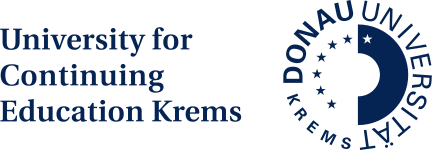
Our Partners and Global Academic Associates
Our Partners
Global Academic Associates
Claudia Alvarenga Marconi is Jean Monnet Chair in European Studies and Academic Coordinator at FECAP; Professor at Pontifícia Universidade Católica de São Paulo (PUC-SP) and Researcher at Observatory of International Relations (PUC-SP), Brazil. Her areas of interest include normative theory and international relations theory; English School of International Relations; International Criminal Court; human rights; international and transitional justice; European Union; corporate social responsibility and business, and human rights.
Joan DeBardelben is Chancellor's Professor, Jean Monnet Chair at Carleton University, Canada (joan.debardeleben@carleton.ca). Her topics of interest encompass the European Union and Russia; the EU’s European Neighbourhood Policy and Eastern Partnership; Politics and society in the Soviet successor states, especially Russia; federalism and multi-level governance in Europe and Russia; Russian elections and Russian federalism.
Paul Bacon is Professor of International Relations (School of International Liberal Studies) and Jean Monnet Chair in European Union Studies at Waseda University, Japan (pbacon@waseda.jp). His areas of interest include inter-regionalism (Europe and Asia); ComparativeRegionalism (Europe and Asia); Human Rights Promotion and Protection; Securitization; Norm Localization; European and Asian Regional Organizations; EU-Japan relations; The impact of Brexit on international order; EU human rights strategy in the Asia-Pacific and Comparative Criminal justice in the Asia-Pacific.
Martin Holland is Director of the National Centre for Research on Europe, University of Canterbury (Christchurch), New Zeland (martin.holland@canterbury.ac.nz). His areas of interest are EU development policy; EU relations with the Pacific; EU relations with New Zealand/Australia, EU-ASEM process; CFSP (theory & case studies); integration theory; good governance & conditionality; EU diplomatic service and EU identity in the Asia-Pacific region.
Leslie Pal is Founding Dean, College of Public Policy, Hamad Bin Khalifa University, Qatar (leslie.pal@carleton.ca). His areas of interest include public administration, public policy and global policy advisory systems and networks.
Larisa Deriglazova is DSc (History), Department of World Politics, Professor and Head of the Jean Monnet Centre for European Studies (CEES) at Tomsk State University, Russia (larisa.deriglazova@mail.tsu.ru). Her topic of interest is EU-Russia relations, focused on identity, human rights, and academic cooperation.
Malte Brosig is Professor in the department of International Relations at University of the Witwatersrand, South Africa (Malte.Brosig@wits.ac.za). His areas of interest encompass the interplay between international organizations; the African Peace and Security Architecture; BRICS and peacekeeping.
Özlem Terzi is Assistant Professor, Faculty of Social Sciences, Political Science and Public Administration at Vrije Universiteit, Amsterdam - former Associate Professor, Faculty of Political Sciences, Department of Political Sciences and International Relations at Istanbul University, Turkey (o.terzi@vu.nl). Her topics of interest are EU foreign policy and diplomacy; EU-Turkey relations; security and political economy of the Arctic.
Pinar İpek is Associate Professor at TOBB ETÜ, Turkey (pipek@etu.edu.tr). Her areas of interest include international political economy; energy security; EU energy policy; East-Med and renewables.
Anatoliy Kruglashov is Professor, Chairman of the Department of Political Science and Sociology at the Yuriy Fedkovych Chernivtsi National University (Ukraine) and Member, Group of Independent Experts on European Chapter of Local Self-Government at Council of Europe (akruglas@hotmail.com). His topics of interest are theory, history and current issues of European integration; history and theory of political science; political history of Eastern Europe; political science of post-communism; ethno-political science; political and regional studies; current issues of theory and practice of public administration and local government.
Stephanie Anderson is Head of School and Professor, School of Politics, Public Affairs & International Studies at the University of Wyoming, USA (RedHead@uwyo.edu). Her areas of interest include European Union identity; security policy; European politics; transatlantic relations; International relations and political communication.
Yee Kuang Heng is Professor at the Graduate School of Public Policy, University of Tokyo, Japan (heng@pp.u-tokyo.ac.jp). His current research interests include UK-Japan defence cooperation and more broadly, Japan's engagement with the European military presence in the Indo-Pacific.
Nora Fisher-Onar is Associate Professor of International Studies at the University of San Francisco where she also coordinates Middle East Studies. She works on the theory and practice of IR to which she takes a global/postcolonial approach, and comparative politics with a focus on Turkey, Europe and the Middle East. Her research explores the role of religion, historical memory and gender in statecraft.
Youssef Cherif is the director of Columbia Global Centers | Tunis (Columbia University). He is a Tunis-based political analyst, member of Carnegie’s Civic Activism Network, and a regular contributor to number of think-tanks (Carnegie, ISPI, IAI, IEMed, etc.). Youssef is the editor of the book The Modern Arab State: A Decade of Uprisings in the Middle East and North Africa, Konrad Adenauer Stiftung, 2021. He is also a PhD Researcher at Leiden University – Institute of Area Studies, and he holds an MA (Chevening) in International Relations from King's College London, as well as an MA (Fulbright) in Classical Studies from Columbia University.












